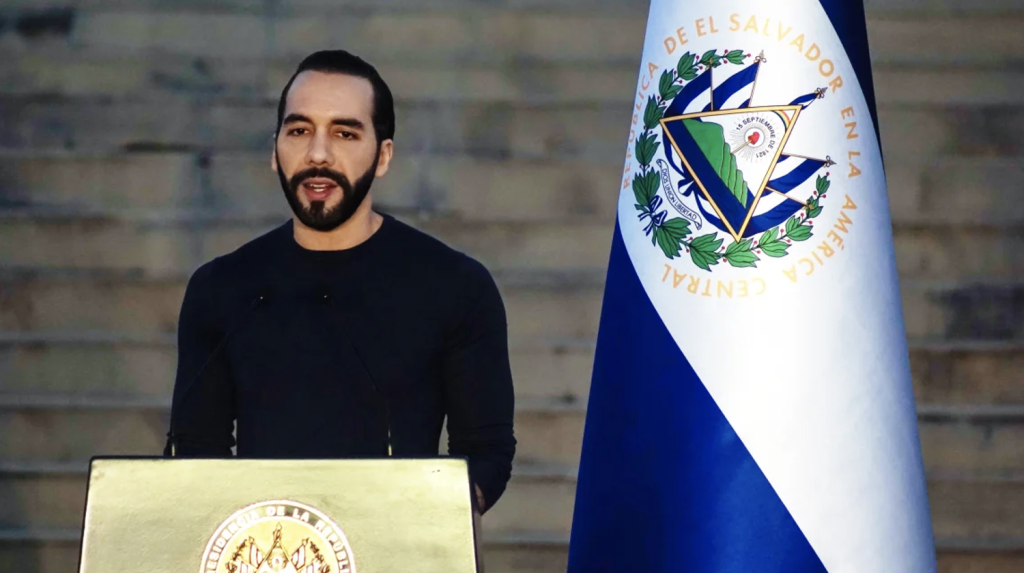
Photo Credit: Alex Peña/Getty Images
By: Margo Jarjoura, 2L
Nayib Bukele declared himself the winner of El Salvador’s 2024 Presidential election before the official results were declared. Polls predicted his victory in a landslide, which prompted Secretary of State Antony Blinken to send his congratulations to Bukele on behalf of the U.S. government. One of the most interesting facts about this election, making it historic is that Bukele is the incumbent president, and was just reelected even though the Salvadorian constitution forbids a president from being immediately reelected.
President Bukele first took office in 2019, but before that, he started his political career as the mayor of Nuevo Cuscatán. The Salvadorian people elected President Bukele on the promise to provide improved and accessible education and health care to all Salvadorians, which resonated with the poor and disadvantaged. His anti-corruption campaign gained support from many Salvadorians since corruption-plagued El Salvador and was a heavy burden for years.
President Bukele is relatively young and has embraced social media as his “go-to” tool for conveying messages to the masses. He prefers TikTok to traditional media; he has become very popular on TikTok to the point where he feels free to be eccentric, proclaiming himself an “instrument of god” and the “the world’s coolest dictator.”
All of that pales in comparison to what he is most known (and loved) for today: leading a massive crackdown on gang violence, which resulted in about 2 percent of El Salvador’s adult population behind bars. In March 2022, he declared a state of emergency after a spike in violence left 87 people dead in one weekend. President Bukele used this state of emergency to suspend certain liberties, such as due process and has engaged in mass arrests. Since then, over 70,000suspected gang members have been arrested, sometimes for just looking suspicious or having tattoos. His actions have produced the most relentless crackdown in El Salvador’s history. Of course, this caught the attention of human rights groups who believe he is arbitrarily detaining many Salvadorians.
In 2021, he replaced all the magistrates of the country’s Constitutional Court and El Salvador’s Attorney General to relax the system of checks and balances. Additionally, President Bukele’s party won the majority in Congress, which reinterpreted the constitution to allow him to run for reelection.
Despite suspected human rights abuses and constitutional violations, he remains extremely popular among Salvadorians, who voted for him at a 93 percent rate. President Bukele claimed he won over 85 percent of the vote before any official results were declared but with only 70 percent of the ballots processed, President Bukele had 83 percent of the then current vote. President Bukele’s landslide victory in defiance of constitutional constraints solidifies his unprecedented leadership and makes one wonder what other constitutional constraints he will ignore throughout his second term of presidency.




